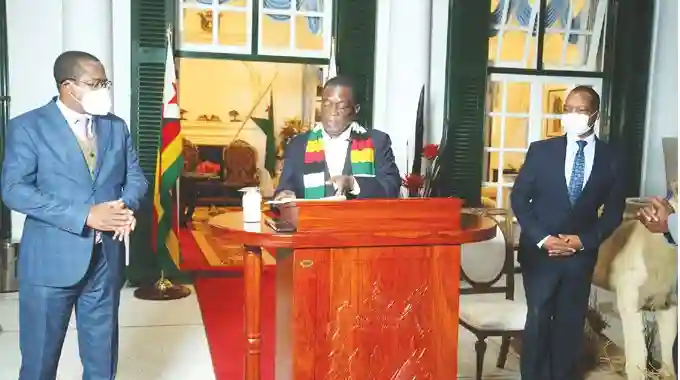Legal experts say President Emmerson Mnangagwa’s ban on bank lending has no legal force.
On Saturday, Mnangagwa banned banks from lending to both corporates and individuals as one of the measures meant to stabilise the local currency, the Zimbabwe dollar/RTGS dollar.
On Monday, the Reserve Bank of Zimbabwe (RBZ) ordered banks to take heed of Mnangagwa’s announcement and threatened to take action against non-compliant banks.
United Kingdom-based lawyer Alex Magaisa said Mnangagwa’s decree has no legal foundation and there is no law compelling banks to comply with such measures. Wrote Magaisa:
This is a shameful document by Zimbabwe’s central bank. Since it knows the decree has no legal foundation it distances itself by calling it a ‘Presidential Announcement’.
There is no legal instrument under Zimbabwe’s laws called a ‘Presidential Announcement’.
He could have used the Presidential Powers (Temporary Measures) Act even if that would still be controversial. But no, he couldn’t be bothered.
And here the central bank colludes in the lawbreaking by purporting to enforce the illegal decree. But the pliant banks will oblige.
Lawyer Obey Shava concurred with Magaisa, saying there is no law giving effect to the President’s announcement. Added Shava:
Banks are not legally obliged to act upon this RBZ directive.
CCC spokesperson and lawyer, Fadzayi Mahere warned that if banks fail to challenge the directive, it will be the end of banking law as we know it. Mahere said:
This decree is unconstitutional in its substance and ultra vires the law.
You can’t undo the entire law of banking, violate the constitutional right to trade and freedom of commerce — and do so by memo!
If banks don’t challenge this, it will be the end of banking law as we know it.
However, in an interview with NewsDay, corporate lawyer Rodgers Matsikidze said the RBZ directive remains binding on banks unless they challenge it in the courts. Said Matsikidze:
Basically, what the President did was pronounce policies.
The relevant procedure was that the relevant minister should have drafted the legal principles of the policies and submitted them to the Attorney-General.
The President could have used the Presidential Powers Act to enact a law on economic policies.
In the meantime, RBZ has proceeded to issue a statement on the announced measures and unless that is set aside by a court of law, it remains binding.
RBZ is a regulator, so unless its directive is challenged in a court of law.

